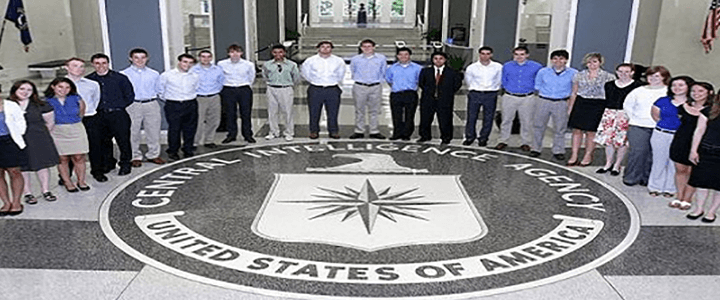If you’re looking for a quick, pleasant hiring process, skip the Central Intelligence Agency. It’s a grueling process, by most any measure. “With all the time and money the CIA is investing in the people it hires,” writes Business Insider’s Paul Szoldra,” the agency probably wants to make sure they have the right qualities to deal with stressful situations.” In many ways, the process itself is part of the test. Szoldra analyzed some CIA hiring experiences, and here are two big lessons worth considering before you move forward.
IT TAKES A LONG, LONG TIME
It’s a government job. Of course it’s going to take a long time. But with the CIA, it’s different. And I suppose we can both expect and appreciate that. Even in by federal government standards, just getting your foot in the door at Langley seems to be a test of your personal determination and commitment to the Agency.
In fact, according to Szoldra’s findings, don’t be surprised if the whole process takes a year or more. And then, don’t be surprised if you walk away with little more than a painful experience. “’From the date of my initial application to my final rejection just before the [conditional offer of employment], it was a total of 10 months,’” one applicant reported. “’If I had made it further, it would have been as much as another 12 months before I could enter on duty. Which can make rejection that much more painful.’”
IT’S VERY, VERY PERSONAL
You can expect to put your life out on the table, and it’s doubtful you can hide, or will want to hide, anything. So before you’re even hired, the Agency is asking a lot of you. Before they trust you, you’ve got to trust them, impeccably. Then, don’t second-guess the Agency and the process. The best approach seems to be tell the truth, and let them decide if they want you on the team.
If they’re not asking about specific experiences you had or did not have, then they’re asking you to tell all yourself. And given the innumerable ways the Agency has to check and double-check into your background, the sense is that if you’re not completely forthcoming, for whatever reason, there’s a good chance your lies or lies by omission will catch up with you . . . someday.
“Applicants need to give up as much info as possible for security clearances, background investigations, military history, employment issues, drug use . . . disciplinary problems, and whether they have any debts,” writes Szoldra. “Having things filled out as far as disciplinary infractions doesn’t mean you won’t get an interview, but lying about it here and them finding out about it later will certainly end your CIA job prospects.” Depending on what skeletons you have in your closet, honesty with the CIA is absolutely the best policy.
If you’re serious about public service and national security, the CIA might be right for you. But if you decide to go for it, be patient with the Agency, and yourself, and buckle down for a long, exciting ride.




